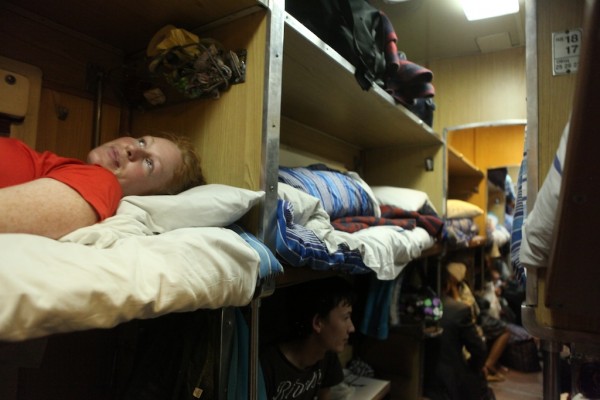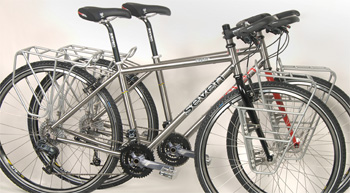This is the third in a series of articles documenting Cycling Silk, A year-long research expedition across Asia.
There are places you can get to by road, and there are places you can only get to by being on the road, a state of mind you can carry, with concerted effort, to almost any context. Even a train swaying drunkenly on its tracks across Kazakhstan as men sway drunkenly through it, past aisles of people stacked in sleeper bunks like produce on shelves – some fresh, some overripe, some way past expiration.
After nearly a month of chasing down elusive visas, a month of spinning wheels that weren’t our bikes, we definitely belonged in the latter category. Getting sanction to cycle the Silk Road through Central Asia is the modern equivalent of the Great Game, a kind of diplomatic chess where enigmatic rules change on a dictator’s whim, where checkmate is risked with every move to a new country, especially a new ‘Stan. With Cycling Silk we couldn’t apply for visas ahead of time, since at our pace, on a trip this long, they’d expire before we arrived. So we’ve had to snag them along the way, which at times has meant intense frustration and desperate tactics to get where we’ve wanted to go. And there’s nothing like banging your head on borders to learn how impenetrable these arbitrary barriers can be.
The biggest hassle was Uzbekistan, a notoriously closed-off country with a special disdain for independent travellers who might well ride their bikes off the beaten track and write about it afterwards. When our Uzbek ‘Letter of Invitation’ (a prerequisite for applying for a tourist visa) didn’t arrive in Azerbaijan on time, we were forced to fly across the Caspian Sea to Kazakhstan; take a 72-hour train ride across the ninth largest country in the world; spend a week waiting in embassy lines and filling out forms in Almaty; and then board that same 72-hour train back to the Caspian Sea coast. Continue reading “Cycling Silk Blog: What is Wasteland, What is Wilderness”



